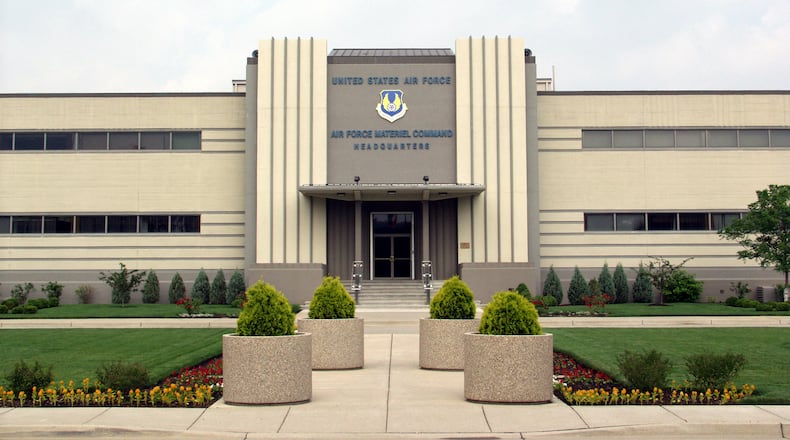Huber told a Dayton Defense luncheon at the Wright State University Nutter Center Berry Room that the command is doing plenty to support Ukraine, which has surprised military and political observers with its robust and nimble defense since the start of the Feb. 24 invasion.
Russian forces have been pushed back from the Ukrainian capital of Kyiv. Today, Ukrainian forces are working to slow Russian attempts to advance in the east of the country, helped in part by billions in aid from other nations, including the United States. The Senate on Thursday passed $40 billion in new aid to Ukraine.
“This is more than just kind of what you see on the news,” Huber said Friday. “There is a lot of effort that is below the sight line that is going on to make sure that the Russians don’t succeed — and it goes (across) the complete spectrum.”
AFMC is assisting with everything from munitions movements, new systems procurement, supply of spare parts and more, he said.
“You can be proud of what your folks here and throughout the AFMC enterprise are doing to support that,” he said.
In his Air Force career, in which he attained the rank of colonel, Huber served multiple assignments at Wright-Patterson. Today, he is acting director of a directorate which has all-encompassing responsibilities, from overseeing testing and evaluations of new airplanes to cyber defense to monitoring and defending against drones around Air Force installations and much more.
While the command is concerned with Russia today, the focus also remains firmly on China, Huber told listeners.
“What you hear from my colleagues is ‘China, China, China,’” he said. “We are very much engaged in addressing that threat and deterring it.”
While Huber is in the role of acting director of the directorate, Air Force Brig. Gen. Scott Cain is the inbound director.
All told, AFMC is responsible for a third of the Air Force budget.
About the Author


